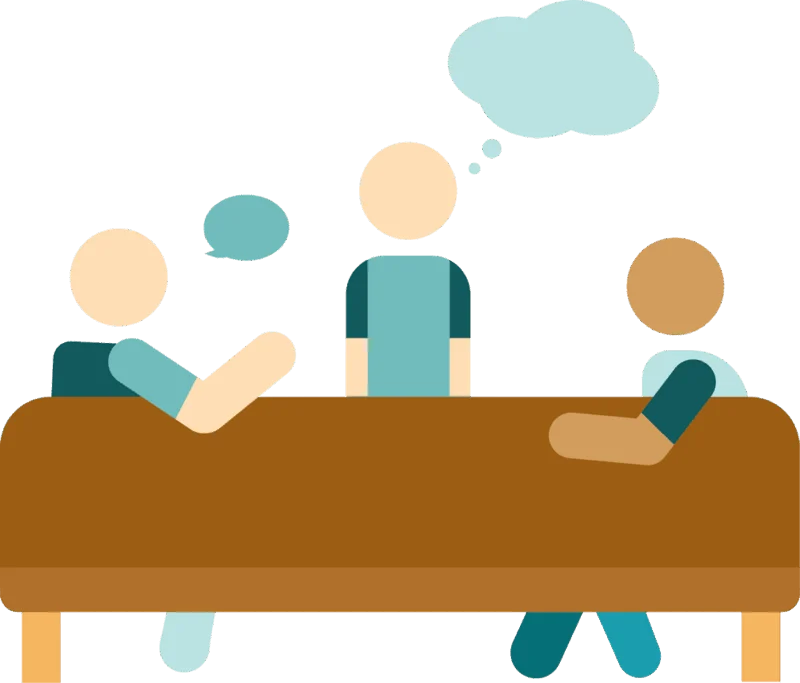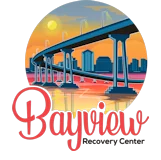Staging An Intervention: Helping a Loved One Overcome Addiction
The most effective and immediate action to combat addiction is an intervention. We’ll guide you on all the ins and outs of how to stage an intervention. Bayview Recovery Center in San Diego, California, does all the heavy lifting to ensure all parties are properly equipped to implement the most effective intervention techniques possible.
It’s not just knowing how to stage an intervention that ensures an effective recovery approach. Learning how to be the best support and accountability partner possible for the addicted party is paramount. Correlatively, here’s everything you need to know about interventions and how to help a loved one suffering from addiction get the help they need.
What is an Intervention?
An intervention is a planned session enacted by loved ones in coordination with a therapist to end self-harming addiction cycles. These sessions are meticulously constructed to intercede on a loved one’s behalf who doesn’t realize the harm their addiction has on themselves or others. Interventions, therefore, provide an insightful perspective of the magnitude of their substance struggles and the potential dangers they pose. After an intervention, the hope is that it encourages and motivates the individual to get the help they need.
Types of Interventions
Not all interventions are created equal. That’s why we implement a variety of intervention approaches that are personally and meticulously engineered for each person’s needs. Bearing that in mind, here are the different types of interventions we provide to ensure an efficient personalized experience.
The Johnson Intervention
The Johnson intervention, or “Johnson Model,” is the most commonly used intervention method in America. This intervention consists of all of the most familiar elements. Family and friends caringly approach the individual with their concerns. From there, they sympathetically inform them of the action they will take on their behalf if they don’t seek help. Once action is taken by either the addicted party or loved ones, all those involved meet with a specialist. Impact statements and various perspectives and concerns, as well as proactive solutions, are then discussed.
Brief Interventions
A brief intervention is a more private, personalized intervention process solely between the struggling party and an individual therapist. This intervention technique is a common practice for an individual who has recently survived an addiction-related drug overdose. This is extremely efficient in such circumstances, as the person is often more inclined to listen following a near-death experience. In these sessions, a professional counselor will privately stress the importance and necessity of addiction rehab and relapse prevention.
Crisis Interventions
An intervention geared towards crisis aversion involves an immediate mental or addiction emergency. This means a person’s substance abuse or mental health problem poses an immediate danger to themselves or others. Therefore, the proper medical or law enforcement authorities may be utilized to act on the addiction or mental health sufferers’ behalf. If you believe someone you love has a mental or substance problem that can induce fatal consequences, reach out to us immediately.
Family Intervention
This type of intervention does more than just focus on getting a family member help. It places an equally high regard on helping the entire family heal together through specialized family training. In our unparalleled family therapy-based interventions, you’ll receive all the emotional and therapeutic support you need to recover together. Mend your family bonds and strengthen your family in recovery by enrolling in our family intervention programs today.

How Do Interventions Work?
A proper intervention works by surrounding the addicted party with friends and family closest to them in a comfortable setting. All this is done in the presence of an intervention specialist conducting the session. Everybody, including the subject, is allowed to express their thoughts and feelings throughout the meeting. If done correctly, the subject will not feel interrogated, backed into a corner, or forced into an uncomfortable setting. Instead, they will feel encouraged to get professional help.
How to Stage An Intervention
There are several steps an expert will implement to conduct your intervention. Please note, that the following steps are a seamless process when arranged, conducted, and instilled by our trained professionals.
Preliminary Planning Process
The process of an intervention begins with a loved one going to our intervention specialists to form a planning group. This process is arranged with the intent of averting any potential tension, anger, or animosity from the addicted party. At the heart of every planning process is love, concern, and open-minded listening on behalf of all involved. We’ll make sure the institution of this process minimizes and neutralizes those threats.
Background Research Briefing
Informing the planning group and the involved therapeutic specialist of the addicted party’s background is the most vital aspect of the planning process. In this step, those closest to the addicted party share all information about the subject with an intervention therapist. This includes knowledge of the individual’s substance abuse background, any observable triggers, character traits, or any other necessary information related to the intervention process. All of the information will be gathered by specific questionnaires by the medical expert conducting the intervention.
Intervention Outcome Determination
The common denominator of the entire intervention process is anticipation. Anticipating and counteracting possible outcomes to specific circumstances before they occur. This includes determining how you are going to respond to specific reactions and decisions of the addicted party that come out of the intervention process. This means responding lovingly and appropriately to any anger or emotional distress they may exhibit throughout the session.
In-Depth Training and Note-Taking
You can’t know how to stage an intervention without proper training and detailed note-taking. That’s why listening and documenting your guidance instructions of your intervention administrator heading into the intervention phase. This would include notating what to say in your impact statement, as well as other caring words of concern you wish to express to the addicted party. In addition, notes from personalized family training you’ll undergo will help you be a positive, active support group member.
Offer Support and Assistance
An intervention is pointless without loved ones willing to be a help in some fashion. That’s why some of the best support you can express is simply to offer your loved ones a helping hand in any way they need. Let them know you’re there for them and are willing to do anything to make sure they get the help they need. If you’re unsure how to help, your interventionist provides personalized training to help define your role as a supporting party.
Intervention Rehearsal
A medical expert will help you practice before the actual intervention takes place. You’ll practice various scenarios and outcomes so there are no surprises. This helps you feel comfortable and allows the overseer to make adjustments or provide proactive guidance and instructions. These rehearsals help you be readily prepared for multiple circumstances and read and react appropriately when the actual intervention transpires.
Post-Intervention Session
Following up on the initial intervention is vital for several reasons. Firstly, it’s important to recap the highlights, progress, positives, and negatives stemming from the intervention event. Secondly, it’s important to follow through on the promises made by all parties during the intervention process. This includes the next vital step of determining which therapy route is the best course to maximize treatment efficacy. If treatment is refused, relationships, approaches to get help, and other strategies must be modified for future attempts.
What Does an Interventionist Do?
Your interventionist teaches you how to stage an intervention by training all involved family members and friends on intervention protocol. This includes support training and helping you formulate strong impact statements, as well as coordinating intervention practice rehearsals. They are your conducting source for planning, preparing, and enacting the intervention as seamlessly as possible to ensure maximum efficacy. To accomplish this, your interventionist also conducts and mediates the entire process.
What to Avoid During an Intervention
There are very specific word usage and behaviors that should be utilized during the interventive meeting. Your family interventionist will help you naturally avoid all of the following:
- Using Prejudicial or Judgmental Terminology: words such as ‘addict’, ‘alcoholic’, ‘drugie’, or other such labels will push an individual farther away. It’s important to use impartial terminology that doesn’t make them feel belittled or judged.
- Avoid a Large Gathering: the intervention session should consist of a small circle of close friends and family, most trusted by the individual. Too large a gathering will likely make them feel crowded or ganged up uncomfortably.
- Angry or irritated tones: It’s important to maintain a level head, preventing negative energy in the form of anger from arising in your tone. Any angry tones will immediately negate any chance of therapeutic progress.
- Argumentative or combative communication: Your feelings and concerns should be expressed without argumentative or combative tones. Any hint of either will only put the subject on the offensive. Make sure you express yourself caringly with a tenderhearted vocal approach to the meeting.
We Can Help Your Loved One Overcome Addiction
Bayview Recovery Center in San Diego, CA, boasts the most cutting-edge, high-quality treatment approaches to help your loved one overcome addiction. Furthermore, we have the most state-of-the-art training practices to help the entire family recover. This includes teaching you how to stage an intervention. Reach out to us now to get you and your loved one the most personalized, quality treatment.

Alyssa is a licensed Clinical Social Worker and received her Master’s degree from San Diego State University. She has experience working with individuals in recovery of all ages for over eight years. Alyssa has also worked with at-risk homeless foster youth transitioning into independent living along with the families in the neonatal intensive care unit at UCSD.
